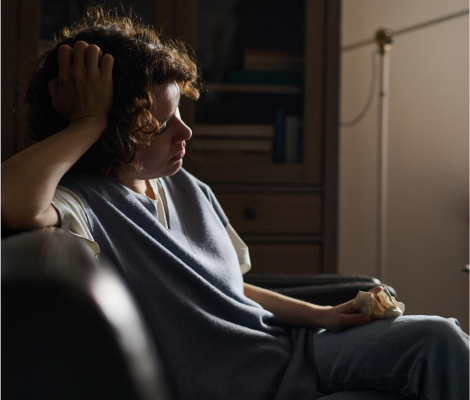A toxic relationship is defined by behaviors that consistently undermine well-being – manipulation, constant criticism, physical/emotional/economic abuse, and lack of support. Identifying and leaving a toxic relationship is critical to your health and happiness. But leaving can be especially difficult when living arrangements are shared – an emotional and physical separation can be especially challenging. We will discuss ways to break up safely and rebuild a healthy life after leaving a toxic relationship.
Skip To:
Understanding Toxic Relationships
Certain indicators point to unhealthy dynamics that may impact mental health – causing depression, anxiety, and low self-esteem. Finding these signs is the first step toward addressing the underlying issues in a toxic relationship.

To understand toxic relationships, you need to recognize warning signs such as:
- Persistent feelings of inadequacies in the relationship.
- Experiencing emotional or physical abuse.
- A pattern of having one’s needs overlooked.
- Continuous criticism and manipulation.
- Walking on eggshells around your significant other.
The difficulty of leaving toxic relationships is often due to emotional dependence, the fear of loneliness, and shared lives – especially when living together. These relationships can create obstructive cycles that people can not see a way out of. Psychological impacts include a deep-seated fear of not finding better or being alone, which binds people to unhealthy patterns. Recognizing these signs and understanding their effects may help people seek help through counseling or support groups, helping them on the path to recovery and healthier interpersonal relationships.
Get Help. Get Better. Get Your Life Back.
Searching for Accredited Drug and Alcohol Rehab Centers Near You?
Even if you have failed previously and relapsed, or are in the middle of a difficult crisis, we stand ready to support you. Our trusted behavioral health specialists will not give up on you. When you feel ready or just want someone to speak to about therapy alternatives to change your life call us. Even if we cannot assist you, we will lead you to wherever you can get support. There is no obligation. Call our hotline today.
(844) 597-1011Unhealthy Relationships Statistics
The statistics below show just how distressing toxic relationships can be. These numbers underscore the scale and severity of such relationships and just how critical it is to recognize and deal with these harmful dynamics early on. Here’s a look at some critical data:
- Victims can be of any age (and sex), but the most prevalent age group for intimate relationship abuse of women is 18 to 24.
- The majority of victims of domestic violence choose to remain silent, with just 38% ever reporting the abuse.
- Intimate partner violence affects about 25% of women in their lives.
- 75% of victims of domestic abuse experience one-sided violence, meaning that only one partner engages in aggressive or controlling behavior.
- 95% of males who mistreat their intimate partners physically also mistreat them mentally.
- Domestic abuse hotlines get over 21,000 calls a day, or about 15 calls each minute, on average.
- In the United States, one in three teenagers has experienced verbal, emotional, sexual, or physical abuse at the hands of a romantic partner.
- A victim must leave seven times on average before deciding to stay away permanently.

How to Leave a Toxic Relationship – Preparing to Leave
There are some emotional as well as practical tips for leaving a toxic relationship. To emotionally detach, you must start looking at the relationship objectively and realize that staying longer might do more harm than good. Steps to emotionally disconnect include becoming less emotionally and physically available, avoiding situations that leave you open to manipulation, and seeking outside help from friends or therapists rather than from your significant other. Practically, you need to secure your finances, make new living arrangements if necessary, and understand the law – especially if you have shared assets or children.
Financially – start putting money away in a separate account and gather all the documents you need. For housing, find out where you might move temporarily or permanently and what your rights are about shared property. In case there are legal problems – like shared assets or custody – you need to consult with an attorney regarding your rights and what you should do next. By addressing these areas, you can create a safer, more organized exit from the relationship.

How to Leave a Toxic Relationship When You Live Together?
Leaving a toxic relationship in which living arrangements are shared, emotional as well as practical readiness requires a methodical approach. Start with emotional detachment: redefine boundaries in the shared space to prevent more than necessary communication and avoid emotionally charged exchanges. Outside of the relationship, find friends, family, or professional counselors to listen and offer support. Here are the detailed steps that can help you manage the separation so it reduces stress and conflict and makes the process faster:
- Financial Preparation: Secure independent financial resources by setting up a personal bank account and gathering all important personal documents.
- Temporary Housing: Research temporary housing – with friends or family – or short-term rental – so you have somewhere to move.
- Legal Consultation & Advice: In case legal problems come up, like custody or joint property, you should consult with an attorney regarding your rights and prepare for a lawsuit if needed.
- Logistical Planning: Plan out how to move out – whether you need to hire moving services, when to move to avoid conflict – and what to take along with you.

Why is It so Hard to Leave a Toxic Relationship?
People often wonder – why is it so hard to leave a toxic relationship? Usually, because so much emotional energy and time is spent attempting to make the relationship work. It might seem like an internal failure or like giving up on something you’ve worked hard for by quitting. It’s important to recognize that not all toxic relationships can be healed, even while there are strategies to turn them around (which require a great deal of mentally demanding work from both sides.)
We may find ourselves in unhealthy settings because our bodies and minds have a tendency to choose familiarity. There may even be fewer reasons to stay when there is no progress being made, making it more difficult to quit. Though leaving might be challenging, it’s essential to acknowledge all the benefits of leaving a toxic relationship and concentrate on the fresh chance to discover a fulfilling partnership.

Get Your Life Back
Find Hope & Recovery. Get Safe Comfortable Detox, Addiction Rehab & Dual Diagnosis High-Quality Care.
Hotline(844) 597-1011After Leaving a Toxic Relationship
Once you leave a toxic relationship, self-care and mental health treatment are important for your recovery. Activities that boost your health – exercise, meditation, or even a hobby – may help you heal. You should also seek out a social network of support and professional help when the emotional load becomes overwhelming. A routine that supports good health and good mental habits is essential to getting your emotional balance and health back.

Rebuilding confidence and self-identity after leaving a toxic relationship is a process of personal growth. Start by finding activities and interests that make you feel like your authentic self again. Also helpful: set realistic goals to regain self-efficacy and self-worth. New learning experiences or community activities may increase your self-esteem and social circle. Be patient with yourself during this time, and know that healing from the abuser takes time and work. Using coaching and attending some personal development events can also help you set goals and make plans for how to reach them.
First-class Facilities & Amenities
World-class High-Quality Addiction & Mental Health Rehabilitation Treatment
Rehab Centers TourRenowned Addiction Centers. Serene Private Facilities. Inpatient rehab programs vary.
Addiction Helpline(844) 597-1011Proven recovery success experience, backed by a Team w/ History of:
15+
Years of Unified Experience
100s
5-Star Reviews Across Our Centers
10K
Recovery Success Stories Across Our Network
- Low Patient to Therapist Ratio
- Onsite Medical Detox Center
- Comprehensive Dual-Diagnosis Treatment
- Complimentary Family & Alumni Programs
- Coaching, Recovery & Personal Development Events
Setting Boundaries and Healing
When you leave a toxic relationship – whether you’re co-parenting or co-working – setting boundaries with an addict or a straight abusive person is important for your recovery and your everyday peace. To set boundaries with an addict or other former toxic partner, you have to say what is and is not allowed in your interactions. It is important to enforce these boundaries regularly and be prepared to handle violations effectively – perhaps with legal or therapeutic help – if necessary. This structure protects your mental and emotional health as well as sets out expectations for the other party so there are no fights.
Therapy and support groups can help you recover even from these relationships. If you are the one suffering from addiction, that is not the reason to stay with a toxic partner. Group therapy for addiction enables peer support and experience sharing during the recovery process. These groups supplement personal therapy in a way that they provide a network of people who understand the process of recovery. Professional therapy, mixed with peer support, creates a healing environment to rebuild self-esteem and regain control over life. Programs like these stress the value of support systems in preventing relapse and helping people stay in recovery and out of abusive relationships.

Resources and Support Systems
If you’re ready to break up, knowing your support systems is critical to your recovery and well-being. Rehab and mental health facilities provide structured environments to heal mentally and emotionally. Such services are provided by We Level Up Treatment Centers for those recovering from addictions and toxic relationships. We offer advice, treatment, and support groups for individuals hoping to rebuild their lives.
Additionally, embracing professional help through therapy and support groups is highly recommended for a faster recovery. In addition to assisting you in healing the emotional scars left by ending a toxic relationship, group therapy for addiction also helps you develop better coping mechanisms and a stronger sense of self-worth. This whole-systems approach to recovery may help you move forward and create a life free of the toxic relationships that have harmed you.
World-class, Accredited, 5-Star Reviewed, Effective Addiction & Mental Health Programs. Complete Behavioral Health Inpatient Rehab, Detox plus Co-occuring Disorders Therapy.
CALL(844) 597-1011End the Addiction Pain. End the Emotional Rollercoaster. Get Your Life Back. Start Drug, Alcohol & Dual Diagnosis Mental Health Treatment Now. Get Free, No-obligation Guidance by Substance Abuse Specialists Who Understand Addiction & Mental Health Recovery & Know How to Help.
Choosing You by Leaving a Toxic Relationship
Leaving a toxic relationship is the first step to reclaiming your well-being and personal freedom. Identify toxic relationships early, set boundaries – especially with children or professional relationships – and focus on self-care and mental well-being recovery. Support systems like rehab and mental health facilities and groups that We Level Up Treatment Centers provide are invaluable for those in transition. Moving forward, remember your health and happiness are the most important. Therapy and support groups can help you heal and regain your identity and confidence. Any step away from toxicity leads to a healthier, happier life. Prioritize yourself because you deserve a life without negativity, full of health, growth, and happiness.
Experience Transformative Recovery at We Level Up Treatment Centers.
See our authentic success stories. Get inspired. Get the help you deserve.
Start a New Life
Begin with a free call to an addiction & behavioral health treatment advisor. Learn more about our dual-diagnosis programs. The We Level Up Treatment Center Network delivers recovery programs that vary by each treatment facility. Call to learn more.
- Personalized Care
- Caring Accountable Staff
- World-class Amenities
- Licensed & Accredited
- Renowned w/ 100s 5-Star Reviews
We’ll Call You
Sources:
casfv.org. (n.d.). Center Against Sexual & Family Violence – Crisis intervention and advocacy. [online] Available at: https://casfv.org/.
gitnux.org. (n.d.). Unhealthy Relationships Statistics [Fresh Research] • Gitnux. [online] Available at: https://gitnux.org/unhealthy-relationships-statistics [Accessed 21 Jun. 2024].








